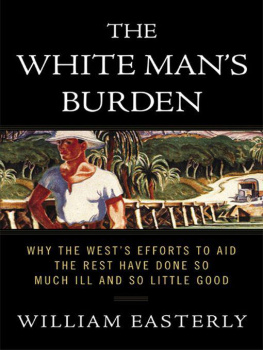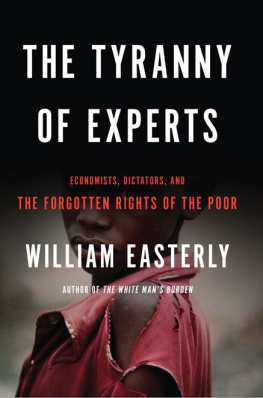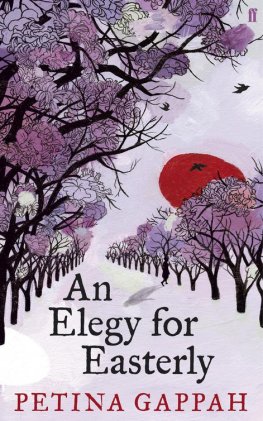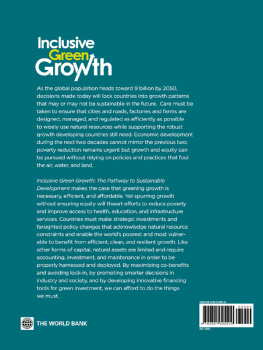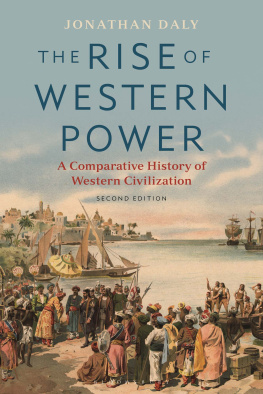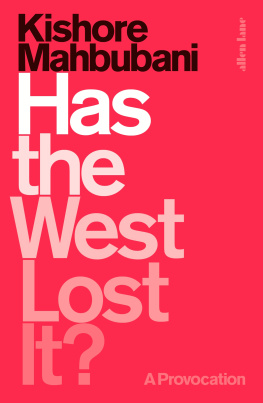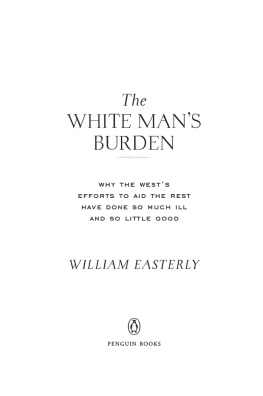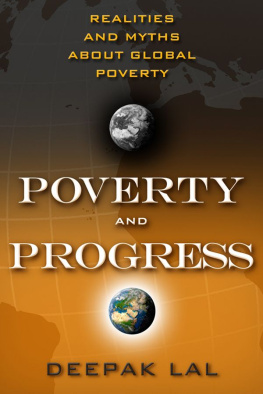The
WHITE MANS BURDEN
WHY THE WESTS
EFFORTS TO AID THE REST
HAVE DONE SO MUCH ILL
AND SO LITTLE GOOD
WILLIAM EASTERLY
THE PENGUIN PRESS
NEW YORK
2006
THE PENGUIN PRESS
Published by the Penguin Group
Penguin Group (USA) Inc., 375 Hudson Street, New York, New York 10014, U.S.A.
Penguin Group (Canada), 90 Eglinton Avenue East, Suite 700, Toronto, Ontario, Canada M4P 2Y3
(a division of Pearson Penguin Canada Inc.) Penguin Books Ltd, 80 Strand, London WC2R 0RL,
England Penguin Ireland, 25 St. Stephens Green, Dublin 2, Ireland (a division of Penguin Books Ltd)
Penguin Books Australia Ltd, 250 Camberwell Road, Camberwell, Victoria 3124, Australia (a division of
Pearson Australia Group Pty Ltd) Penguin Books India Pvt Ltd, 11 Community Centre, Panchsheel Park,
New Delhi110 017, India Penguin Group (NZ), Cnr Airborne and Rosedale Roads, Albany, Auckland
1310, New Zealand (a division of Pearson New Zealand Ltd) Penguin Books (South Africa) (Pty) Ltd,
24 Sturdee Avenue, Rosebank, Johannesburg 2196, South Africa
Penguin Books Ltd, Registered Offices:
80 Strand, London WC2R 0RL, England
First published in 2006 by The Penguin Press,
a member of Penguin Group (USA) Inc.
Copyright William Easterly, 2006
All rights reserved
L IBRARY OF C ONGRESS C ATALOGING-IN -P UBLICATION D ATA
Easterly, William Russell.
The white mans burden: why the Wests efforts to aid the rest have done so much ill and
so little good / William Easterly.
p. cm.
Includes bibliographical references and index.
ISBN: 978-1-1012-1812-9
1. Economic assistanceDeveloping countries. 2. PovertyPrevention. I. Title.
HC59.7.E22 2006
338.91'1713dc22
2005055516
Designed by Stephanie Huntwork
Without limiting the rights under copyright reserved above, no part of this publication may be reproduced, stored in or introduced into a retrieval system, or transmitted, in any form or by any means (electronic, mechanical, photocopying, recording, or otherwise), without the prior written permission of both the copyright owner and the above publisher of this book.
The scanning, uploading, and distribution of this book via the Internet or via any other means without the permission of the publisher is illegal and punishable by law. Please purchase only authorized electronic editions, and do not participate in or encourage piracy of copyrightable materials. Your support of the authors rights is appreciated.
F OR R ACHEL , C ALEB, AND G RACE, AS ALWAYS
T O L IZZIE, WITH LOVE AND RESPECT
The
WHITE MANS BURDEN
SNAPSHOT: AMARETCH
I AM DRIVING OUT OF Addis Ababa, Ethiopia, to the countryside. An endless line of women and girls is marching in the opposite direction, into the city. They range in age from nine to fifty-nine. Each one is bent nearly double under a load of firewood. The heavy loads propel them forward almost at a trot. I think of slaves driven along by an invisible slave driver. They are carrying the firewood from miles outside of Addis Ababa, where there are eucalyptus forests, and across the denuded lands encircling the city. The women bring the wood to the main city market, where they will sell it for a couple of dollars. That will be it for their days income, as it takes all day for them to heft firewood into Addis and to walk back.
I later found that BBC News had posted a story about one of the firewood collectors. Amaretch, age ten, woke up at 3:00 A.M. to collect eucalyptus branches and leaves, then began the long and painful march into the city. Amaretch, whose name means beautiful one, is the youngest of four children in her family. She says: I dont want to have to carry wood all my life. But at the moment I have no choice because we are so poor. All of us children carry wood to help our mother and father buy food for us. I would prefer to be able to just go to school and not have to worry about getting money.1
When another group of Western television cameramen encountered the depths of poverty in Ethiopia for the first time, they went back to their hotel rooms and cried their eyes out.2 That is the right response. What can be more important? I dedicate this book to Amaretch, and to the millions of children like her around the world.
CHAPTER ONE
PLANNERS VERSUS SEARCHERS
Take up the White Mans burden
In patience to abide,
To veil the threat of terror
And check the show of pride;
By open speech and simple,
An hundred times made plain,
To seek anothers profit
And work anothers gain.
Take up the White Mans burden
The savage wars of peace
Fill full the mouth of Famine,
And bid the sickness cease.
RUDYARD KIPLING,
THE WHITE MANS BURDEN, 1899
U NITED K INGDOM C HANCELLOR of the Exchequer Gordon Brown is eloquent about one of the two tragedies of the worlds poor. In January 2005, he gave a compassionate speech about the tragedy of extreme poverty afflicting billions of people, with millions of children dying from easily preventable diseases. He called for a doubling of foreign aid, a Marshall Plan for the worlds poor, and an International Financing Facility (IFF) against which tens of billions more dollars toward future aid could be borrowed to rescue the poor today. He offered hope by pointing out how easy it is to do good. Medicine that would prevent half of all malaria deaths costs only twelve cents a dose. A bed net to prevent a child from getting malaria costs only four dollars. Preventing five million child deaths over the next ten years would cost just three dollars for each new mother. An aid program to give cash to families who put their children in school, getting children like Amaretch into elementary school, would cost little.3
Gordon Brown was silent about the other tragedy of the worlds poor. This is the tragedy in which the West spent $2.3 trillion on foreign aid over the last five decades and still had not managed to get twelve-cent medicines to children to prevent half of all malaria deaths. The West spent $2.3 trillion and still had not managed to get four-dollar bed nets to poor families. The West spent $2.3 trillion and still had not managed to get three dollars to each new mother to prevent five million child deaths. The West spent $2.3 trillion, and Amaretch is still carrying firewood and not going to school. Its a tragedy that so much well-meaning compassion did not bring these results for needy people.
In a single day, on July 16, 2005, the American and British economies delivered nine million copies of the sixth volume of the Harry Potter childrens book series to eager fans. Book retailers continually restocked the shelves as customers snatched up the book. Amazon and Barnes & Noble shipped preordered copies directly to customers homes. There was no Marshall Plan for Harry Potter, no International Financing Facility for books about underage wizards.4 It is heartbreaking that global society has evolved a highly efficient way to get entertainment to rich adults and children, while it cant get twelve-cent medicine to dying poor children.
This book is about that second tragedy. Visionaries, celebrities, presidents, chancellors of the exchequer, bureaucracies, and even armies address the first tragedy, and their compassion and hard work deserve admiration. Many fewer address the second tragedy. I feel like kind of a Scrooge pointing out the second tragedy when there is so much goodwill and compassion among so many people to help the poor. I speak to many audiences of good-hearted believers in the power of Big Western Plans to help the poor, and I would so much like to believe them myself. I often feel like a sinful atheist who has somehow wound up in the meeting of the conclave of cardinals to choose the successor to the saintly John Paul II. Where there is a lot of consensus for Big Plans to help the poor, the audience receives my doubts about these plans about as well as the cardinals would receive my nomination of the pop singer Madonna to be the next Pope.

